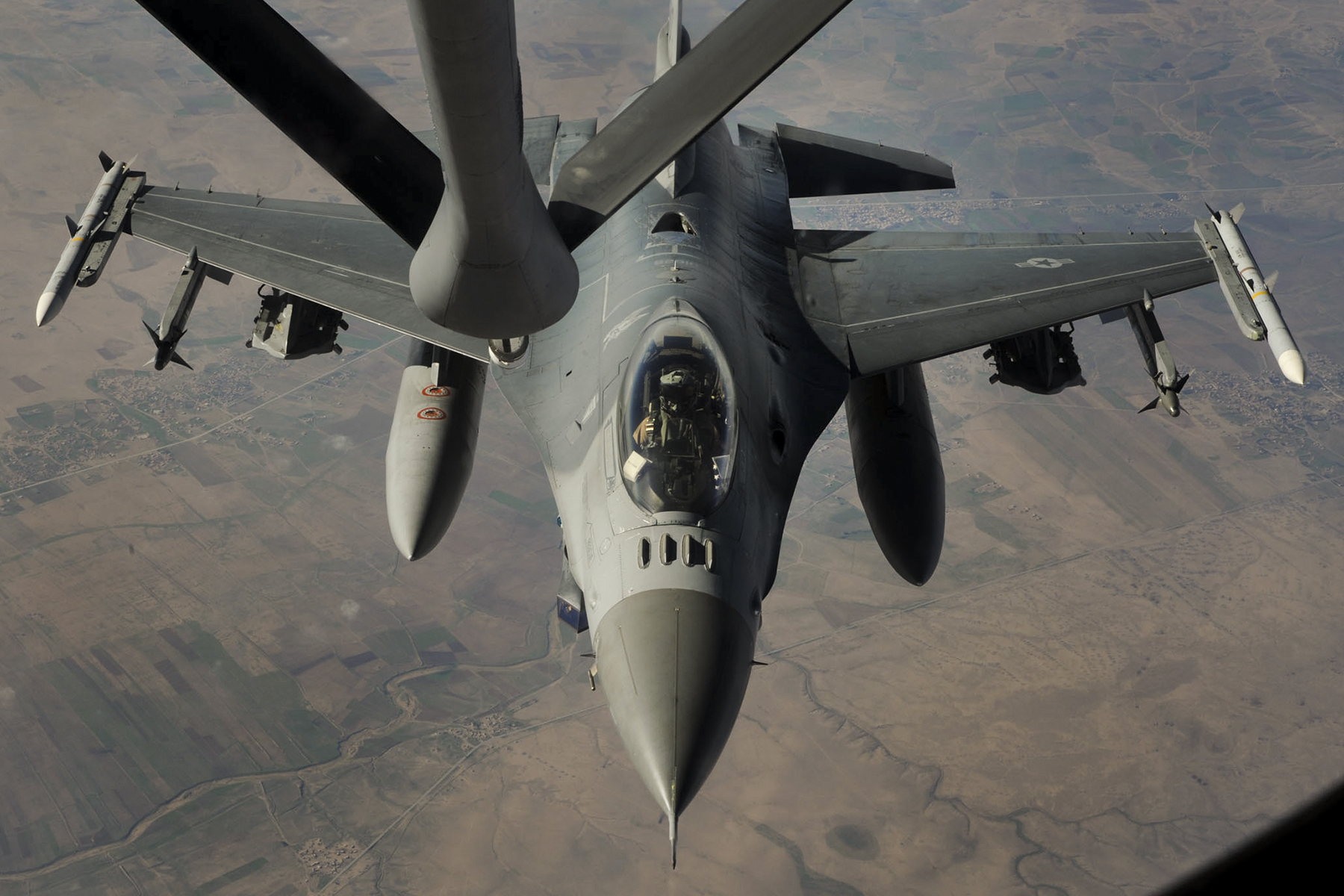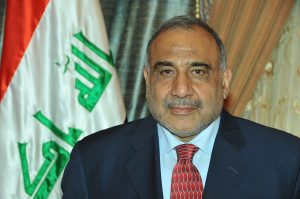by Derek Davison
It has now been over 14 months since the Obama administration authorized the first strikes in Iraq against the Islamic State (ISIS or IS), and roughly 13 months since that campaign expanded to include IS targets in Syria. The campaign, called Operation Inherent Resolve, has, according to Pentagon figures, so far involved over 7,600 airstrikes against IS targets and has cost over $4 billion.
Looking back on the past year plus, it’s difficult to identify where Inherent Resolve has actually produced any sustained successes, though admittedly it’s impossible to know what shape IS would be in if the bombing campaign had never started. Yes, coalition air power helped the Iraqi army and its allied Shi?a militias to recapture the city of Tikrit from IS in late March. But the coalition wasn’t able to do much to prevent IS from taking the city of Ramadi, in Sunni-dominated Anbar province, in May. Also in May, and also despite coalition airstrikes, IS was able to capture the city of Tadmur, in central Syria, and the nearby ancient ruins at Palmyra. In the last couple of weeks, IS has made new advances toward the northern Syrian city of Aleppo, despite both the coalition air campaign and the new Russian-led air campaign (though there are legitimate questions as to whether and how much that Russian campaign is really targeting IS).
The one-year anniversary of the start of the anti-IS campaign has led to a flurry of events on the state of IS and the results of the campaign held by various Washington, DC think tanks. During an online-only event sponsored by the Middle East Policy Council in Washington on October 20, Brian Katulis, a senior fellow at the Center for American Progress, described a campaign whose efforts have “fallen short” and said that the initiative requires a “major course correction.” He argued that “the campaign has not moved beyond a mix of tactical setbacks and tactical successes,” owing to three factors: the fact that no country involved in the coalition has made fighting IS its top priority, the lack of a force on the ground (particularly in Syria) with both the capability and the will to take on IS, and an overall lack of attention to the failures of governance that created the conditions for IS’s rise. Katulis said that this last factor, a “crisis of political legitimacy,” was at the root of current Middle Eastern violence, and that only “internal negotiations,” leading to reform in Iraq and to a brand new government in Syria, could bring about the political change needed to undermine IS’s strength.
Hassan Hassan, a Chatham House associate fellow who co-authored the widely acclaimed book ISIS: Inside the Army of Terror was even more pessimistic than Katulis when he addressed an October 15 event held by the Atlantic Council and an October 16 event held by the Center for American Progress. Although IS actually lost almost 10% of its territory in the first half of 2015, despite taking Ramadi and Tadmur in May, Hassan told the CAP audience that the group “is entrenching itself into the terrain it’s ruling…it’s not always about expanding.” In other words, it has been working on the “remain” part of its “remain and expand” strategy.
But Hassan actually went further than Katulis and others who have criticized the air campaign’s ineffectiveness. He told the Atlantic Council audience that the bombing may (at least in Syria) be driving new recruits to the Islamic State:
We’ve seen a fascinating report by The Financial Times that ISIS still earns $1.5 million a day from oil alone. So that calls into question the impact of the air campaign that is targeting the financial roots of ISIS. Now, it’s not only ineffective, but it’s also counter-productive when it comes to the local population…more people are now joining ISIS because they have no other choice but to join the group. Everyone from communities living under ISIS would say that there is a general suspicion against ISIS. People suspect it, people don’t trust it, people fear it, and they always deal with it as a temporary ruler of their areas.
But at the same time, desperate families have started to allow their sons to join ISIS, because of two things. The first one is that the airstrikes have disrupted a wartime economy that was functioning before ISIS came. One of the family members would go and work in oil, for example…people could operate their heavy vehicles and engines to pump water from the Euphrates River and the Tigris River for agricultural lands. Because the airstrikes have disrupted this economy, people have no other choice. I notice that families do either of two things: get their sons to join ISIS, or send their sons to Europe as refugees…or both.
It’s long been argued that U.S. airstrikes, particularly drone strikes, may actually be driving people toward groups like IS and al-Qaeda by radicalizing communities who are impacted by those strikes and engendering opposition toward the United States and the often-autocratic governments it supports throughout the Arab world. But if Hassan is right, then people may be driven into extremist groups out of sheer economic desperation because the destruction caused by the air campaign has literally left them no other way to survive. The effect of the air campaign simply compounds the problem these people have been facing thanks to those failures of governance that Katulis talked about, by destroying whatever local institutions they’ve created to overcome the lack of effective national institutions.
At the same October 16 CAP event, Brookings Institution Fellow Will McCants, whose recent book The ISIS Apocalypse has also been well-received, said that “the center of this struggle is the Sunni Arab tribes that ISIS rules over as a state, and until you can find a way to support them, the state endures.” A year into Operation Inherent Resolve, the coalition has not only failed to support those Sunni tribes, its airstrikes may actually be actively harming them.






The USA only accepts it has been mistaken years after the situation has become worse. It is now only the USA is admitting to the mistakes they did in Iraq has embolded ISIS.
Now Russia is changing the rules. By attacking seriously ISIS and getting tangible results in on month,the failure of the USA and its doubtful coalition are becoming obvious to the world and extremely damaging of the USA reputation. The USA has been caught with its pant down and they don’t know who to correct that. First the media tried to minimize the Russian success then now the USA defense minister is promising a change of strategy toward ISIS. The USA will no more try to please the Saudis, the Qataris and the Turks by not bombing the terrorists they are supporting.
It is the reputation of the USA that is at stake . It is high time the USA tells these countries to step aside and let the USA participate in the eradication of all Islamists who reject democracy in Syria and Iraq.